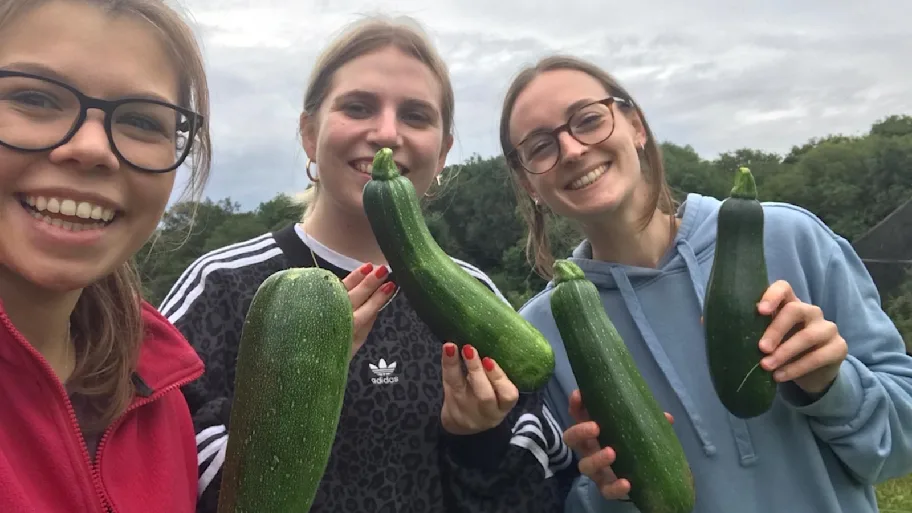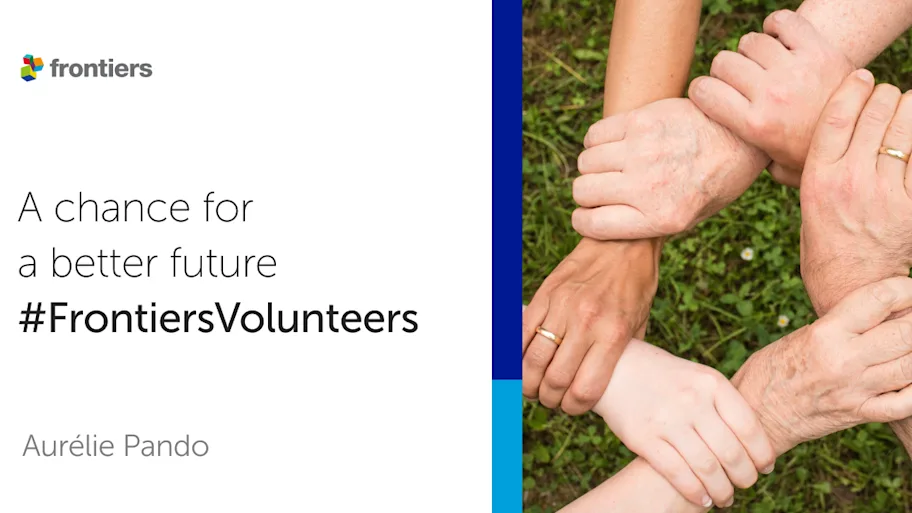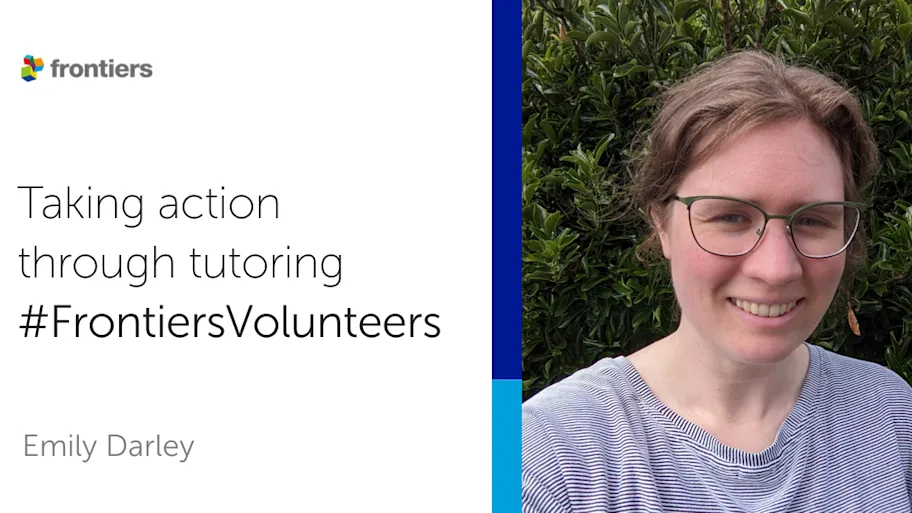
- Science news
- Frontiers news
- Frontiers’ volunteers: tutoring pupils and inspiring careers
Frontiers’ volunteers: tutoring pupils and inspiring careers
Frontiers’ volunteers have always been at the forefront of community and societal responses. This week, we talk to fellow Fronton Jennifer Pinnell, journal specialist in Frontiers in Cell and Developmental Biology, about volunteering for Action Tutoring, a British education charity supporting pupils from disadvantaged backgrounds.

Credit: Jennifer Pinnell
What is your background? What is your role at Frontiers?
I joined Frontiers last year (2021) as a journal specialist in Frontiers in Cell and Developmental Biology. This was my first step into a career outside of academia and research, following on from a research position at the University of Bath. My background is in molecular biology and neuroscience. I studied my bachelors in Human Biosciences at the University of Plymouth, a MSc in Molecular Neuroscience at the University of Bristol and then gained my PhD from the University of Plymouth, with the majority of my research conducted at Florida International University in Miami, as my lab relocated. This role at Frontiers allows me to apply my scientific knowledge and background, whilst helping to support academics in the publication of their research.
What does the organization you volunteered for do?
Action Tutoring supports young people who face socio-economic disadvantages to reach higher academic achievement, by providing in-school tutoring sessions in English and Maths. They work with pupils from low income and disadvantaged backgrounds to increase their chances of achieving a grade 4 or above at GCSE, which can lead to more opportunities for higher education. They are passionate that the circumstances into which we are born should not predict our chances of success in life, working towards making educational success fairer.

Credit: Action Tutoring
What was your motivation for choosing it?
I choose to volunteer for Action Tutoring as am passionate about their mission to make education fairer and to support pupils whose circumstances might raise additional barriers to success. As a child I benefited from similar programmes, attending after school sessions for extra English lessons and also a summer school for academically gifted students, which all contributed to my positive attitude to education and my decisions to pursue higher education as I grew older. These early interventions can shape the students' experience of school life, their attitudes to school work and their approach to future opportunities.
I chose to tutor Maths at Year 7 level, as it was a subject which I found challenging in school, and in which the pupils' confidence can impact their abilities. My experience with maths teachers, both those who worked to help me understand and those who showed less patience to help, shaped my confidence with the subject which had an impact throughout my academic research and more broadly in life, so I am thankful for this opportunity to help pupils understanding and build their confidence.
What exactly did you do as part of your skill-sharing/volunteering?
I work with Action Tutoring on a weekly basis, leading a small group (2-3 pupils) in an after school tutoring session. I work with the same group of pupils for 15 weeks, so that each week we can build upon the knowledge and skills from before, working from learning and revisiting basic principles which they have covered in their maths lessons, to the application of these skills to more complex problems. This includes trying exam-style questions and helping students to understand how to maximise their marks by showing working out alongside their answers. Action Tutoring provides workbooks and resources for the sessions, and guidance in handling pupils if we encounter difficulties during the sessions. They also provide great online training and will arrange the required DBS checks for anyone new to tutoring.
By working with the same group each week, I build relationships with these pupils, getting to know their personalities and learning how to adapt the session to their needs. I also meet other tutors as we run sessions in parallel with different groups, so it is rewarding to meet other like-minded individuals, who range from University students to retired teachers, all giving that time each week to help.
What did you learn from the experience?
This volunteering has really taught me how valuable it is to give some time to others, and shown how rewarding it can be. I am able to celebrate the successes of my students as they do well, support them when they are lacking confidence, and to think creatively when we need to approach a question in another way. It builds upon the problem solving and communication skills which I apply daily in my role, and I am proud to be a part of this initiative as someone who can positively influence young minds by helping and hopefully inspiring them.
For more than a decade, Frontons have been showing a great passion and big heart for the most pressing world causes, both as scientists and as citizens of the world. At Frontiers, we are committed to contributing to communities in a meaningful and sustainable way and encourage our people to participate in charity activities.

Frontiers is a signatory of the United Nations Publishers COMPACT. This interview has been published in support of the United Nations Sustainable Goal 4: Quality Education






